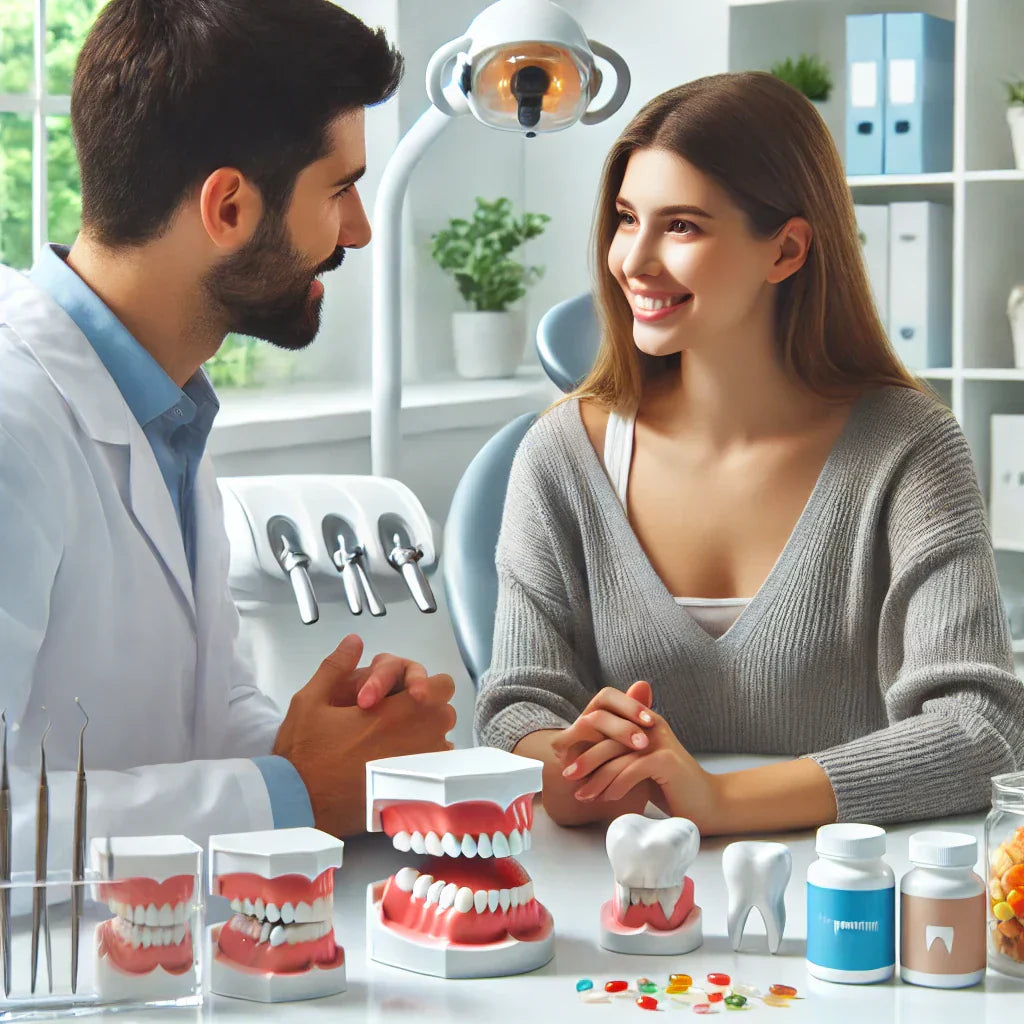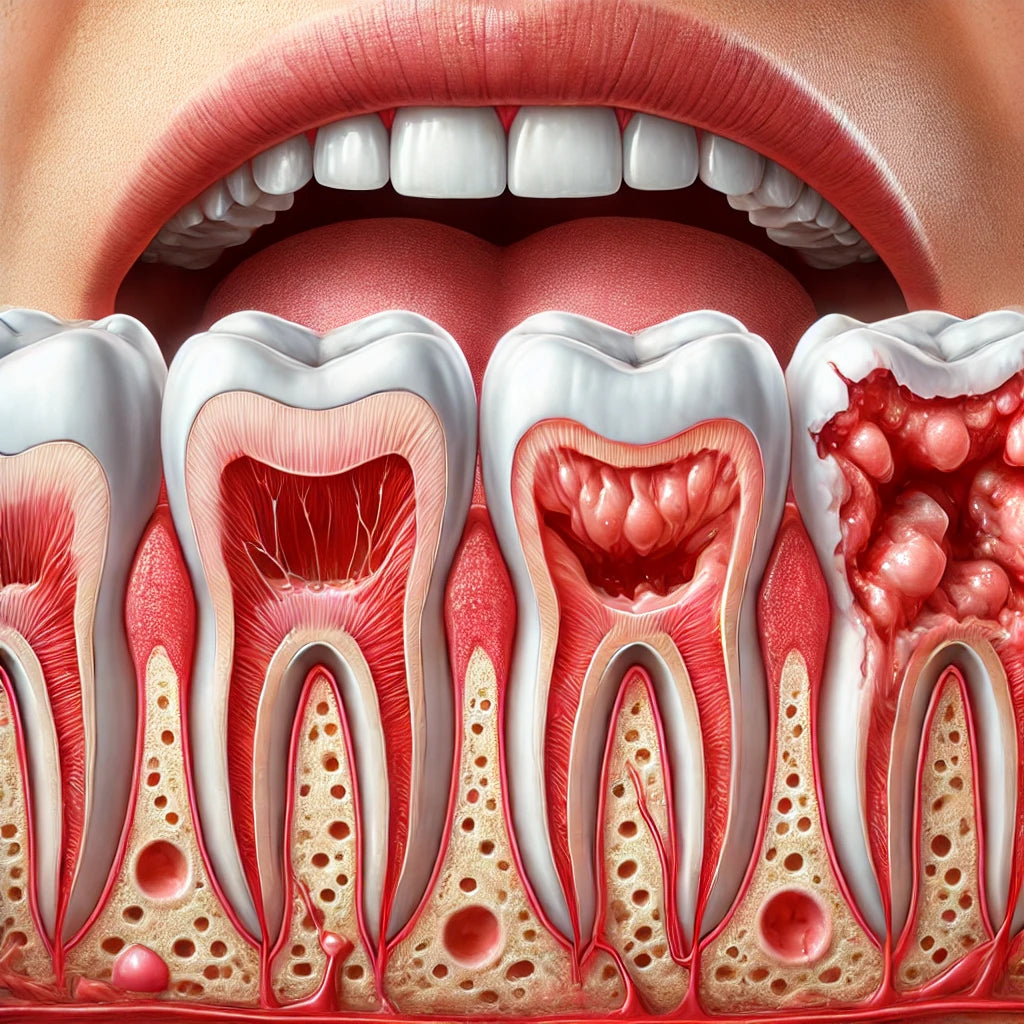News — gum health
Bleeding Gums When Brushing: Causes & Solutions
bleeding gums brushing causes dental care dentist flossing gingivitis gum disease gum health Long Life Nutri mouthwash nutrition oral health oral hygiene periodontitis prevention supplements toothbrush vitamin C vitamin K
Have you ever noticed pink on your toothbrush or a trace of blood when you rinse after brushing your teeth? While it’s easy to dismiss bleeding gums as a minor annoyance, it’s often your body’s way of signaling that something needs attention. Bleeding gums are a common concern, but they shouldn’t be ignored—especially if it happens regularly. Understanding why your gums bleed when you brush can help you take action to protect your oral health and overall well-being.
From poor brushing habits to underlying health conditions, several factors can contribute to gum bleeding. In this article, we’ll break down the most common causes, offer tips for prevention, and explain when it’s time to see a dentist. With the right knowledge and care, you can keep your smile healthy and bright for years to come.
Preventing Periodontal Disease: A Guide to Healthy Gums
brushing and flossing dental checkups diabetes and gum disease gingivitis prevention gum disease prevention gum disease symptoms gum disease treatment gum health healthy gums oral hygiene periodontitis prevention plaque removal preventing periodontal disease smoking and gum disease
Periodontal disease, commonly known as gum disease, is a serious condition that can lead to tooth loss and other health complications if left untreated. It starts with gum inflammation (gingivitis) and can progress to more severe forms, such as periodontitis, which damages the soft tissue and bone supporting the teeth. While gum disease is common, it is largely preventable with proper oral care.
Keeping your gums healthy is essential for maintaining not just your oral health, but your overall well-being. The good news is that with consistent hygiene practices, regular dental visits, and a few lifestyle changes, you can significantly reduce the risk of periodontal disease. In this guide, we'll explore the causes, symptoms, and prevention strategies for keeping your gums in top condition.


